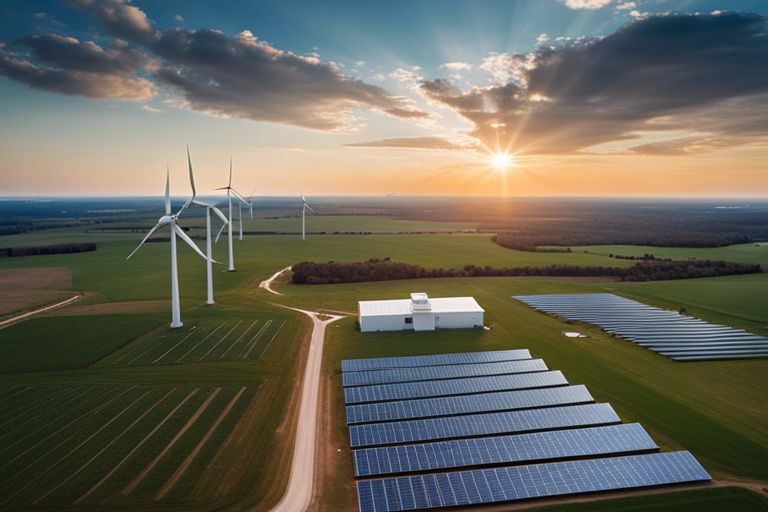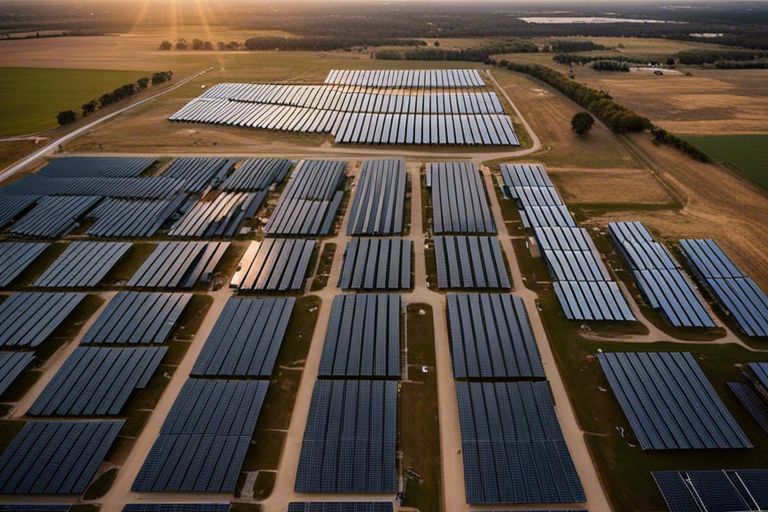There’s no denying that the demand for renewable energy sources is on the rise in Oklahoma. With the state’s abundant wind and solar resources, the potential for hydrogen fuel cells to revolutionize the energy landscape is substantial. Hydrogen fuel cells offer a clean, efficient, and sustainable alternative to traditional fossil fuels, making them a promising solution for reducing greenhouse gas emissions and combating climate change. In this blog post, we will probe into the potential of hydrogen fuel cells as a future energy source in Oklahoma, exploring their benefits and challenges in the quest for a greener, more environmentally friendly energy future.
Key Takeaways:
- Hydrogen fuel cells have the potential to play a significant role in the future of renewable energy in Oklahoma due to the state’s vast wind resources and emerging hydrogen infrastructure.
- Oklahoma’s commitment to renewable energy makes it an ideal candidate to adopt hydrogen fuel cell technology as a clean energy solution.
- Hydrogen fuel cells offer a reliable and sustainable alternative to traditional fossil fuels, reducing carbon emissions and promoting environmental conservation in Oklahoma.
- Investments in hydrogen infrastructure and partnerships between government, industry, and research institutions are important to drive the adoption of hydrogen fuel cells in Oklahoma.
- Collaboration and innovation in the development and implementation of hydrogen fuel cell technology can help boost Oklahoma’s economy, create jobs, and establish the state as a leader in renewable energy innovation.

The Basics of Hydrogen Fuel Cell Technology
How Hydrogen Fuel Cells Work
Some of the most promising advancements in renewable energy technology come in the form of hydrogen fuel cells. These cells generate electricity by combining hydrogen with oxygen from the air, producing water and heat as byproducts. This process is highly efficient and emits no greenhouse gases, making it a clean and sustainable energy option for the future.
Advantages of Hydrogen as a Fuel Source
With the push towards reducing carbon emissions and transitioning to cleaner energy sources, hydrogen stands out as a versatile and eco-friendly fuel option.Hydrogen is abundant, can be produced from various sources like water and natural gas, and can be stored for long periods without losing its energy potential. These characteristics make it a reliable and efficient choice for powering a wide range of applications, from vehicles to stationary power systems.
Cells
Work
With the advancements in technology, the cost of producing hydrogen has been decreasing, making it more competitive with traditional fossil fuels.Hydrogen fuel cells also offer quick refueling times and longer driving ranges compared to electric vehicles, making them a practical alternative for transportation needs. Additionally, hydrogen fuel cells can be scaled up for large-scale energy production, offering a sustainable solution for meeting the growing energy demands of the future.
Oklahoma’s Energy Landscape
Current Renewable Energy Initiatives
Even though Oklahoma has long been known for its oil and gas industry, the state has been making strides in the renewable energy sector in recent years. The wind energy sector, in particular, has been growing rapidly, with Oklahoma ranked among the top states in the nation for wind power capacity. Initiatives such as the Zero Emission Tax Credit and the Wind Energy Tax Credit have helped incentivize the development of renewable energy projects in the state.
Role of Hydrogen Fuel Cells in Oklahoma’s Energy Mix
Energy security and environmental concerns are driving the exploration of alternative energy sources in Oklahoma, and hydrogen fuel cells are emerging as a promising option. Any investment in hydrogen fuel cells in Oklahoma has the potential to diversify the state’s energy mix, reduce greenhouse gas emissions, and create new job opportunities in the green energy sector. Hydrogen fuel cells can also play a vital role in supporting the grid stability and energy independence of the state.
This transition towards hydrogen fuel cells signifies a shift towards a more sustainable and resilient energy infrastructure in Oklahoma. This technology offers clean energy solutions and contributes to the state’s efforts to combat climate change. By incorporating hydrogen fuel cells into the energy mix, Oklahoma can reduce its reliance on traditional fossil fuels and move towards a more sustainable future.
Challenges and Opportunities
Technical and Infrastructural Challenges
One of the key technical challenges facing the widespread adoption of hydrogen fuel cells in Oklahoma is the need for a robust infrastructure to support refueling stations. Currently, the state has a limited number of hydrogen fueling stations, making it difficult for consumers to access this renewable energy source. Additionally, the efficiency of hydrogen production and storage technologies needs to be improved to make them more cost-effective and reliable for everyday use.
Economic and Policy Opportunities for Adoption
With the increasing focus on renewable energy and reducing carbon emissions, there are significant economic and policy opportunities for the adoption of hydrogen fuel cells in Oklahoma. Government incentives and subsidies can help offset the initial costs of installing hydrogen fueling stations and encourage investment in this clean energy technology. Furthermore, the growing demand for fuel cell vehicles presents a lucrative opportunity for businesses in the transportation and energy sectors to capitalize on the shift towards sustainable transportation solutions.
Opportunities also exist for Oklahoma to position itself as a leader in the development and implementation of hydrogen fuel cell technology. By investing in research and development initiatives, fostering collaboration between industry stakeholders, and implementing supportive policies, the state can create a thriving hydrogen economy that not only reduces greenhouse gas emissions but also creates new job opportunities and stimulates economic growth.

Future Outlook
Projected Growth of Hydrogen Fuel Cells in Oklahoma
Once again, the future outlook for hydrogen fuel cells in Oklahoma is promising. With advancements in technology and a growing interest in sustainable energy sources, the use of hydrogen fuel cells is projected to increase significantly in the state. This growth will not only benefit the environment but also create new opportunities for economic development and energy security.
Integration with Oklahoma’s Energy Goals
For Oklahoma, the integration of hydrogen fuel cells aligns well with the state’s energy goals. Any initiative that promotes the use of clean and renewable energy sources is in line with Oklahoma’s commitment to reducing carbon emissions and transitioning towards a more sustainable energy future. Integration of hydrogen fuel cells can also enhance energy reliability and independence for the state, reducing dependence on traditional fossil fuels.
Conclusion
Ultimately, while hydrogen fuel cells hold great promise as a clean and sustainable energy source for the future, their widespread adoption in Oklahoma may face challenges. Factors such as infrastructure development, cost-effectiveness, and public acceptance will play crucial roles in determining the feasibility of hydrogen fuel cells as the primary renewable energy source in the state. However, with further research, investment, and policy support, hydrogen fuel cells could indeed become a significant part of Oklahoma’s renewable energy landscape in the years to come.
FAQ
Q: What are hydrogen fuel cells?
A: Hydrogen fuel cells are devices that convert the chemical energy of hydrogen into electricity through electrochemical reactions, with water as the only byproduct.
Q: Are hydrogen fuel cells considered renewable energy sources?
A: Yes, hydrogen fuel cells are considered renewable energy sources because hydrogen can be produced from water using renewable energy sources like wind or solar power.
Q: How do hydrogen fuel cells work?
A: Hydrogen fuel cells work by combining hydrogen and oxygen in an electrochemical process to produce electricity, with heat and water vapor as the only emissions.
Q: What are the advantages of using hydrogen fuel cells for renewable energy?
A: Some advantages of using hydrogen fuel cells for renewable energy include zero emissions of pollutants, high energy efficiency, and the ability to store and transport energy effectively.
Q: Are hydrogen fuel cells used for renewable energy in Oklahoma?
A: While hydrogen fuel cells are not widely used for renewable energy in Oklahoma currently, there is growing interest and investment in this technology in the state.
Q: What is the potential for hydrogen fuel cells in Oklahoma’s renewable energy future?
A: Oklahoma has great potential for utilizing hydrogen fuel cells in its renewable energy future, particularly in industries like transportation, energy storage, and power generation.
Q: What are the challenges facing the adoption of hydrogen fuel cells in Oklahoma?
A: Some challenges facing the adoption of hydrogen fuel cells in Oklahoma include the high cost of production, limited hydrogen infrastructure, and the need for supportive policies and incentives.




